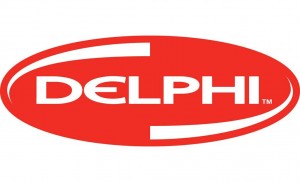 Seven years after a bankruptcy filing launched what became a sweeping reorganization – and the longest corporate run through the Chapter 11 process in American business history — Delphi Automotive is final returning to the good graces of Wall Street.
Seven years after a bankruptcy filing launched what became a sweeping reorganization – and the longest corporate run through the Chapter 11 process in American business history — Delphi Automotive is final returning to the good graces of Wall Street.
The auto parts manufacturer Delphi Automotive (US:dlph) will replace Titanium Metals Corp. in the S&P 500 index, S&P Dow Jones Indices said in a statement Tuesday evening.
The change will take place after the close of trading on Dec. 21, when Precision Castparts Corp. is expected to complete its acquisition of Titanium Metals.
Delphi, which assumed control of a substantial portion of General Motors’ in-house parts empire in 1999, filed for bankruptcy in 2008 as its struggled with an unwieldy cost structure built around traditional union contracts that had been undercut and rendered unsustainable by the rapid globalization of the auto industry.
Prior to the bankruptcy, Delphi’s position had also been undermined by mismanagement and a deep-seated feud with GM, which was trying to cut costs as it faced a financial crisis that ultimately led to its own government-orchestrated bankruptcy in the spring of 2009.
Both GM and Delphi emerged from bankruptcy in 2009.
As part of the exit plan for Delphi’s bankruptcy, GM bought back several operations, including the old Saginaw Steering Gear, which later was sold off and became a separate Chinese-owned company called Nexteer.
The post-bankruptcy Delphi, while remaining one of the world’s largest automotive suppliers with a large book of GM business, has closed virtually all of its unionized plants across the U.S. and now shifted its manufacturing base to China, Mexico and Latin America.
It also has extensive European operations but has dramatically reduced its cost-base, especially in old lines of manufacturing. Meanwhile, it has shifted emphasis to higher-tech businesses that promise to generate higher prices and margins, such as safety, environmental protection and infotainment.
Delphi’s stock is publicly traded once again but large blocks of the company’s share are still controlled by private investors, including hedge funds and private equity funds.

Yes sir, make the CEOs and management wealthy by exporting U.S. jobs to China, Mexico and Latin America under the guise that it’s the “Union Contract’s” that are causing the financial woes, not bad management and financial greed. Only in America could you sell that line of crap to naive and uninformed sheeple.
It’s a disgrace that the real reason U.S. jobs are exported is simply to increase the multi-million dollar annual BONUSES of corrupt companies. These CEOs want all of the trappings of the U.S. but they want to ship our jobs out of the U.S. to increase their excessive compensation even higher than it is already. If you want an eye-opener, look at the executive compensation for other companies in other countries such as Europe, where the people enjoy a better standard of living and have a higher cost of living than the U.S. and you’ll see that execs of equally sized Euro companies receive dramatically lower compensation than in the U.S. The German car makers would be a perfect comparison. Look at their exec compensation. The VW group is almost as large as GM and may become #2 world wide before long. Look at what their CEO receives compared to U.S. companies of equal size.
The U.S. is the “land of opportunity” for execs willing to export U.S. jobs – and they should be held accountable for their inappropriate and unconscionable choices, IMO.
It’s worth noting that I am not currently nor have I ever been a “Union member” but as a Biz executive I know when the public is being misled and the financial statistics and compensation data confirms this reality, no matter how much deception is used to Spin it.
Jorge,
I have to agree that Delphi is clearly not a great example of how to make manufacturing work in America. Part of the challenge, however, is to decide how we can exist in a globalized world economy. Clearly, the classic wage structure no longer works when automakers can opt for parts produced at the lowest cost in places like China, Mexico or even Bangladesh. But it is intriguing to see other parts makers find ways to avoid completely abandoning the U.S.
Paul A. Eisenstein
Publisher, TheDetroitBureau.com